TEN THINGS I WISH I HAD KNOWN WHEN I WAS DIAGNOSED WITH BREAST CANCER
I still find it hard to believe that next month it will be over ten years since I was first diagnosed with breast cancer; and even though it’s a decade later, cancer’s chimes still reverberate in my life. When I look back on all that I have learned through the experience, I feel sad for all I had yet to know back then. I can’t help wondering how much my experience might have been different if I had known then what I know now.
One thing I’ve now come to believe is that we owe it to those who come after us to share our hard-earned wisdom, in the hope that it will make their path towards recovery that little bit smoother. So in that spirit, here are ten lessons I’ve learned since I was first diagnosed with breast cancer. I hope you will add your own pearls of wisdom in the comments below.
1. Being diagnosed with cancer changes everything about your life
Cancer invades not only your body but every other area of your life – your relationships, your finances, your career, your sense of self. Once you’ve been baptised in the fire of cancer, your life as you knew it will be irrevocably changed. Life is uncertain for all of us, but those with a cancer diagnosis have a heightened awareness of that uncertainty. Cancer lays bare your vulnerability and underlines the uncertainty of life. As writer and prostate cancer survivor, Dana Jennings wrote, “mortality is no longer abstract, and a certain innocence has been lost.”
2. You will experience bone-crushing fatigue
Many people think that fatigue is something you only experience during treatment. In fact, many of us experience fatigue months or even years after completing active treatment. Unlike normal tiredness, cancer related fatigue does not always go away with rest and sleep. For a brilliant description of what fatigue really feels like
read Eileen Rosenbloom’s ode to fatigue.
3. Chemo-brain is real
Cognitive impairment to a lesser or greater degree can effect you both during and after your treatment. You may have the feeling that your cognitive abilities are slower and less acute than before – almost as if your brain is shrouded in a fog. We call this the “chemobrain” affect and the bad news is that the effect may persist for months or even years. Problems with memory and concentration are the most common cognitive complaints and while there is no specific treatment for chemobrain, regular mental and physical exercise has been shown to improve memory and brain function.
4. You will feel pressured to be a positive role model
I admit I caved in at the beginning to friends and family pressure to be positive when I was first diagnosed with breast cancer because it reassured the people around me. While I accept that for some people maintaining a positive attitude is a valid coping mechanism, for myself and many others, being expected to always show our sunny side is a denial of our pain,anger, grief and suffering. By promoting stoicism in the face of cancer, we create unfair expectations and deprive patients of an outlet for their darker fears by deeming them weak, and more insidiously, a barrier to their survival. This is my personal viewpoint, and it’s one that I don’t expect everyone to share. However, I mention it here so those who are newly diagnosed don’t feel they have to always present an optimistic, smiling face to the world. It really is ok to express your fears, your sadness, your anger, and your grief too.
5. Cancer is an illness, not a military campaign

It seems whenever I hear a story about someone with cancer, war metaphors frequently accompany the telling – in which battles must invariably be valiantly fought, won, or lost. Cancer is an illness, not a battle, and yet the language of cancer continues to be infected by connotations of war. In
The Personal is Rhetorical: War, Protest, and Peace in Breast Cancer Narratives, Dr Kristen Garrison writes that the language of war which dominates breast cancer discourse pervades every aspect of the experience and determines how the patient and others understand the illness
. “Women are enlisted in a battle against the self, their bodies made war zones, with cancer as the enemy, medical professionals as infallible heroes, and treatments of search-and-destroy by any means possible,” she writes. “While this metaphor may serve to motivate some women, we should not accept it uncritically as the only and right way to make sense of this disease; furthermore, we should recognize how the war metaphor delimits the ways women can talk about breast cancer, potentially silencing women for whom a combat mode is inappropriate or ineffective.”
6. You need to be your own health advocate and speak up for your needs
I learned this lesson the hard way when I discovered to my cost that the topic of
fertility preservation for younger women with cancer is often inadequately addressed. The decision to initiate fertility preservation must be made quickly before cancer treatment begins. The sense of urgency which surrounds a cancer diagnosis, and insufficient support and information meant I didn’t feel I had time to explore my fertility options before treatment began. This ultimately had a negative effect on my emotional and psychological healing from cancer. I wish I had known that in fact I
did have options and a brief window of opportunity in which to preserve my fertility prior to undergoing cancer treatment
. Now I speak up and I speak out for all those women who will be diagnosed with breast cancer at a younger age and who deserve the chance to preserve their fertility, if that is their wish.
7. Blogging can become your soft place to fall
Writing for Journeying Beyond Breast Cancer and linking into a community of liked-minded bloggers has been the single most empowering thing that I have done in my journey with cancer. It has enriched my experience, brought new friendships into my life and expanded my horizons like nothing else. Cancer can be a frightening and lonely experience. Being able to write about it honestly and unsparingly and connect with others is a powerful release mechanism. Even though it is many years since my diagnosis of breast cancer, I still find strength, solace and support in writing here.
8. You will find incredible support online
Before the Internet connected people from every corner of the globe, many patients experienced their illness in isolation. As human beings we have an innate desire to feel connected with others who live life through similar lenses. I’ve discovered just how much people are willing to reach out to others to provide advice and support online. Online you can find 24/7 access to support, unbound by restrictions of time or location. Any person, anywhere, any time – whether they are a patient, caregiver, family member, or friend—can find someone else in similar circumstances who understands what they are going through.
9. Cancer doesn’t end when treatment does

I wish I had been better prepared for how I would feel when cancer treatment ended. I just assumed I would pick up where I had left off and get on with my life as if cancer had been no more than a blip. I wish someone had told me that cancer doesn’t end when treatment does. Sometimes, there can be a code of silence surrounding the aftermath of cancer treatment. There is an expectation that when you walk out of hospital on that last day of treatment, your cancer story has ended. You are expected to close the page on that chapter and pick up the pieces where you left off before your life was abruptly put on hold with those words “you’ve got cancer”. But it’s not so simple. The fact is that for many cancer survivors
the end of treatment can be every bit as terrifying as the day of diagnosis. I have come to believe that surviving cancer is more complicated than simply being disease free and that a physical cure does not mark the end of the healing process.
10. You need to grieve your old self and find a new way of being in the world
Grief is a natural response to loss and although we normally associate grief with the death of a loved one, the fact is that any loss can cause grief, including serious illness. I recently read a piece written by Corinne Edwards, author of
When Your Husband Has Died, A Survival Guide, and much of what she had to say about the nature of grief and finding your new normal, struck me deeply on many levels.
The old normal is gone…after a period of intense pain, you’ll be different. The person you were is gone. It is an amputation. Eventually, a new person will emerge. It will be the new normal. A new life will start to take shape, but the limb you lost won’t grow back. You will have something in common with a soldier who bravely runs a marathon despite having a prosthesis for a leg…This new person will have a life which includes peace, love and even laughter, community and new friendships. It can and will happen in your own time.
What are some of the things you wish you had known at the start of your cancer journey which may have made a difference to your experience?
https://journeyingbeyondbreastcancer.com/2016/08/30/ten-things-i-wish-i-had-known-when-i-was-diagnosed-with-breast-cancer/


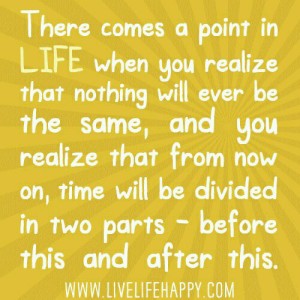

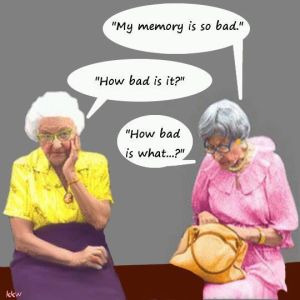


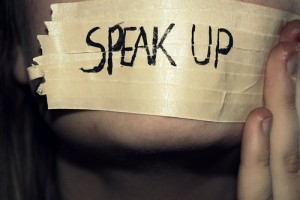

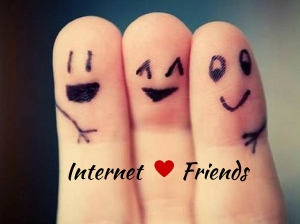

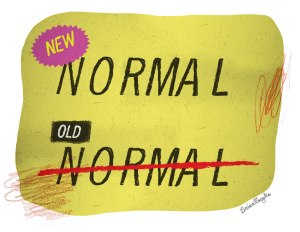






.jpeg)

